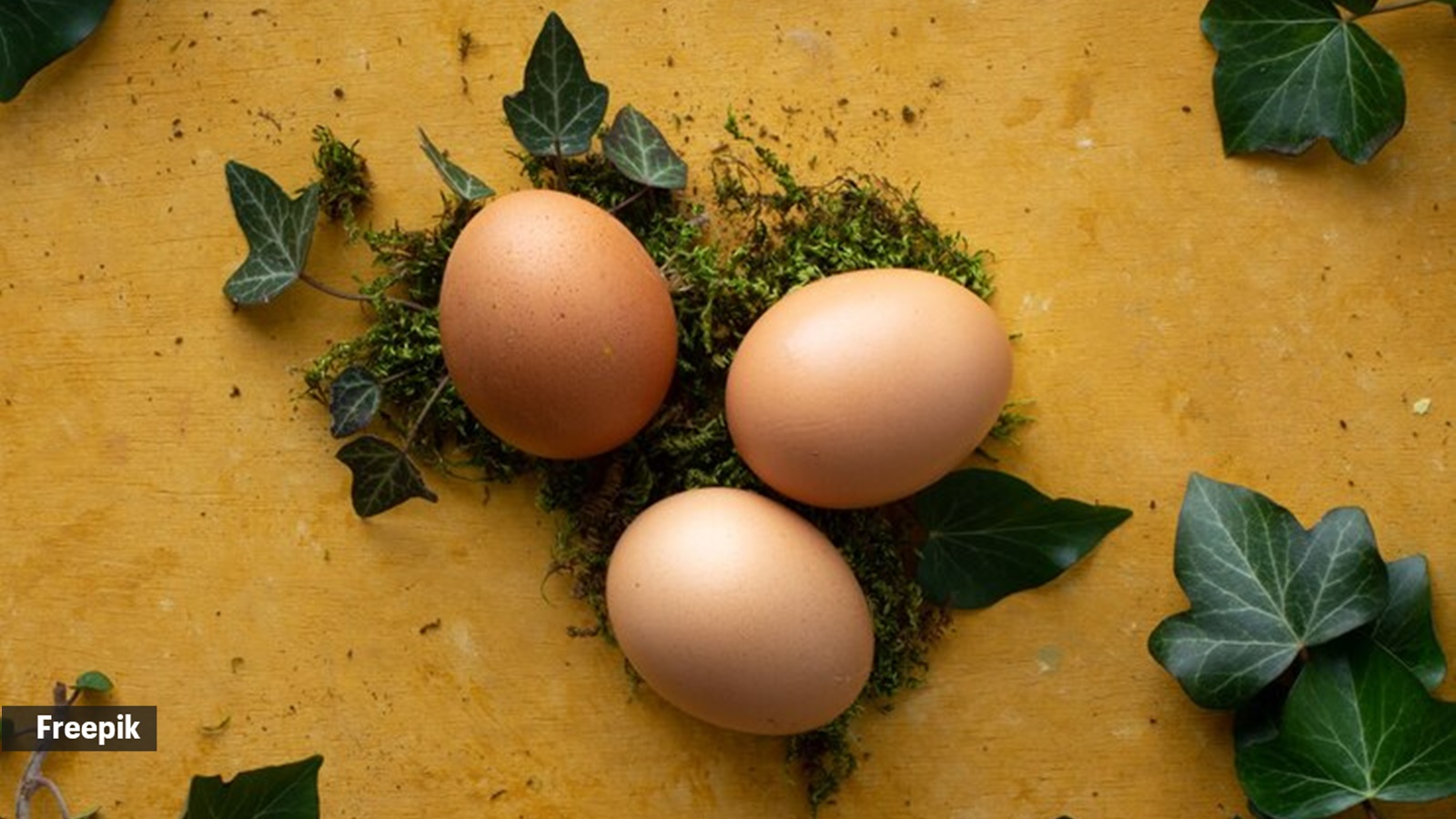Eggs are a staple food for numerous cultures around the world, loved for their versatility and nutritional value. They are packed with essential nutrients including protein, vitamins, and minerals. But, many believe that eating them can increase body heat and lead to stomach problems.
Nutritionist and content creator Amita Gadre, however, believes that eggs should be eaten in the summer. “Go by how you feel and not what some influencer tells you. The most common dietary mistake in summer is not drinking enough water and eating enough dietary fibre especially that coming from vegetables,” she captions her post on Instagram.
Consultant dietician and certified diabetes educator Kannika Malhotra agrees, “Eggs are a nutritional powerhouse, and their benefits extend well into the summer months.”
Here’s why you should consider including them in your diet:

Hydration and Electrolyte Balance: Contrary to popular belief, eggs aren’t heat-inducing. They are a good source of electrolytes like sodium, potassium, and phosphorus, which are crucial for maintaining fluid balance, especially with increased sweating in hot weather.
Energy Levels: Summers can lead to fatigue. Eggs are a complete protein source, containing all essential amino acids. This protein helps build and repair tissues, promotes satiety (feeling full), and provides sustained energy throughout the day.
Immunity Boost: Eggs contain essential vitamins and minerals like vitamins A, D, B12, and iron. These micronutrients play a vital role in supporting a healthy immune system, which is important for fighting off infections common during summer.
Eye Health: Eggs are rich in antioxidants like lutein and zeaxanthin, which protect your eyes from sun damage. These antioxidants may help prevent age-related macular degeneration, a concern as we age.
Some healthy egg-based dishes to incorporate this summer
Eggs are a versatile ingredient, Malhotra says, you can incorporate them into your summer meals in various healthy ways:
*Quick and easy breakfast: Scrambled eggs with chopped vegetables like spinach, peppers, and onions provide a protein and vitamin boost to start your day.
*Light and refreshing salads: Hard-boiled eggs sliced and added to salads with leafy greens, chopped tomatoes, and a light vinaigrette dressing make for a satisfying and nutritious lunch.
*Frittata fun: Frittatas are oven-baked egg dishes that can be customised with seasonal vegetables, cheese, and lean protein like grilled chicken. They’re perfect for brunch or a light dinner.
*Soups with a swirl: Poached eggs add a touch of richness and protein to chilled summer soups.

Precautions to keep in mind when consuming eggs in hot weather
“There’s a misconception that eggs heat up your body. While they do contain protein, which the body burns for energy, this process doesn’t significantly raise your body temperature,” Malhotra asserts.
Eggs themselves aren’t inherently warm or cold, she informs. Their temperature depends on how they’ve been stored.
Refrigerated: Most eggs are stored in the refrigerator, which keeps them around 40°F (4°C).
Room temperature: If left out for a while, they’ll come closer to room temperature, which can be anywhere from 68°F to 77°F (20°C to 25°C).
Cooking: When cooked, eggs will obviously reach a higher temperature depending on the cooking method. Scrambled eggs might be around 160°F (71°C), while hard-boiled eggs can reach 212°F (100°C).
Suitable alternatives to eggs for individuals with dietary restrictions or preferences
For vegans and vegetarians who don’t consume eggs, Malhotra suggests that there are excellent alternatives to ensure they get the necessary summer nutrition:
Plant-Based Protein: Legumes like lentils, beans, tofu, and tempeh are rich in protein and can be incorporated into salads, stir-fries, and curries.
Nuts and Seeds: Almonds, walnuts, chia seeds, and flaxseeds are good sources of protein, healthy fats, and essential vitamins and minerals. They can be enjoyed as snacks or sprinkled on salads and yogurt.
Nutritional Yeast: This deactivated yeast is a vegan source of protein and B vitamins, adding a cheesy flavour to dishes.
© IE Online Media Services Pvt Ltd
First uploaded on: 01-05-2024 at 09:28 IST

Rohit Malhotra is a medical expert and health journalist who offers evidence-based advice on fitness, nutrition, and mental well-being. His articles aim to help readers lead healthier lives.


